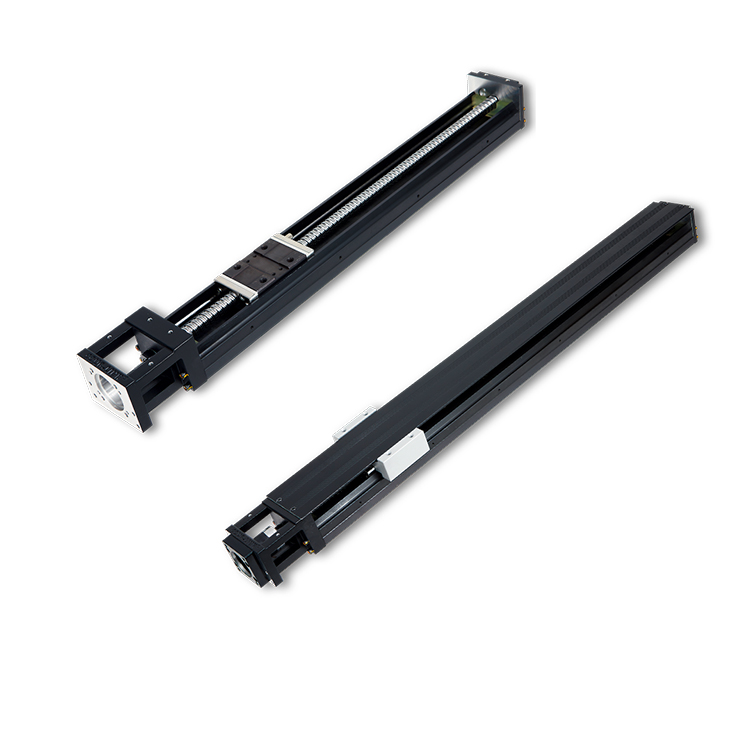CNC machine tool linear modules are automated processing equipment driven by digital control technology. Their core operational principle involves using computer-programmed instructions to drive servo systems, thereby precisely controlling the relative motion between the cutting tool and the workpiece. During operation, users must write machining programs to define toolpaths, speeds, and parameters. These programs are then input into the control system, which interprets and converts them into specific motion commands.
One key feature of these linear modules is their high precision. Leveraging advanced sensor technology and high-precision transmission devices, machining errors can be controlled at the micron level. They support multi-axis linkage functionality, enabling the machining of complex curved surfaces to meet the diverse product demands of modern manufacturing. Additionally, their modular design simplifies installation and maintenance, reducing operational costs.
CNC machine tool linear modules exhibit exceptional stability and reliability, maintaining high performance even during prolonged continuous operation. Equipped with intelligent monitoring systems, they can detect equipment status in real time and provide fault warnings, further enhancing production efficiency and safety. These characteristics make them indispensable in high-end manufacturing sectors such as automotive, aerospace, and electronics.

Applications of CNC Machine Tool Linear Modules in Modern Manufacturing
As a core component of modern manufacturing, CNC machine tool linear modules are widely utilized. Through precise control systems, they enable accurate machine tool operations, thereby improving production efficiency and machining accuracy. Their applications are particularly prominent in automotive manufacturing, aerospace, and precision instrument processing, where they execute complex machining tasks to meet high-precision and high-efficiency production requirements.
Another significant advantage of CNC machine tool modules lies in their flexibility and programmability. By modifying programs, the same machine tool can adapt to different tasks, drastically reducing equipment investment and setup time. With advancing technology, the intelligence of these linear modules continues to evolve, enabling self-diagnosis, fault prediction, and other functions that enhance process stability and reliability.
In modern manufacturing, CNC machine tool linear modules are integrated with automation systems to form highly automated production lines. This integration not only boosts efficiency but also lowers labor costs, allowing manufacturers to respond more agilely to market fluctuations and demand shifts. As Industry 4.0 and smart manufacturing progress, the applications of CNC machine tool linear modules will expand further, positioning them as a pivotal technology driving industrial transformation and upgrading.
Maintenance and Optimization Strategies for CNC Machine Tool Linear Modules
Maintenance and optimization strategies are critical to ensuring the long-term stability of CNC machine tool modules. Regularly inspect mechanical components such as guide rails, sliders, and ball screws to ensure cleanliness and absence of wear. Apply appropriate lubricants to minimize friction and extend component lifespan.
For CNC system maintenance, periodically update software to patch vulnerabilities and enhance performance. Additionally, inspect electrical connections to eliminate loose or damaged wiring, which may cause signal interference or machine failure.
